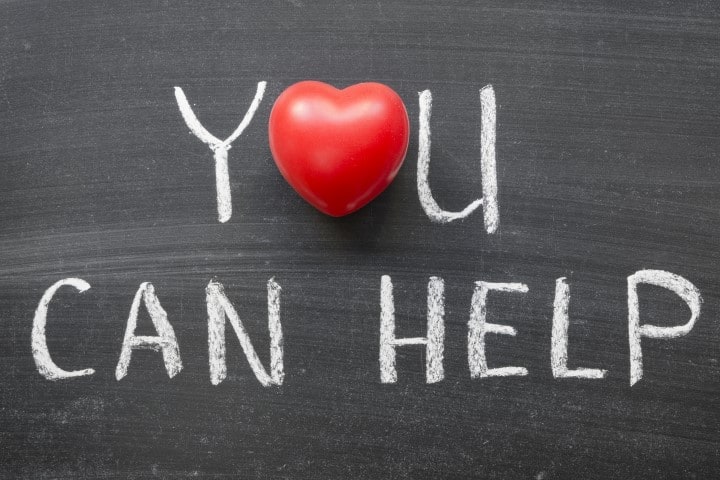“I don’t want to live in the kind of world where we don’t look out for each other. Not just people who are close to us, but anybody who needs a helping hand. I can’t change the way anybody else thinks, or when they choose to do, but I can do my bit.” ~ Charles de Lint When someone you know and care about is addicted to drugs or alcohol, it can also have a devastating effect on you. Addiction is a disease that affects the alcoholic or drug user AND everyone around them. The closer the relationship, the worse the damage can be. Families get the worst of it. Naturally, your first instinct is to help. But if you go about it the wrong way, you can actually end up enabling their addiction. If you truly want to do what is best for them and the rest of your family, here are some helpful tips that you can use to get your addicted loved one to get the help they need.
#1. Learn About Addiction
Know thy enemy. Addiction is a complicated disease, and if you want to know how to best support and help your loved one, it is up to you to learn everything you can.
- Look into family therapy specifically for the loved ones of addicts/alcoholics
- Go to 12 Step fellowship/support groups such as Al-Anon
- Read addiction literature
#2. Withhold Your Judgment
One of the first things you learn is that addiction is a disease, not a weakness or moral failing. When you come to that realization, you’ll be able to avoid such unproductive thoughts like:
- “If he/she loved me, they would quit.”
- “All they need to do is apply a little willpower.”
- “They need to stop drinking/drugging for me…our child… their job, etc.”
- “How can they keep doing this?”
An addict does not have a choice, because addiction is defined by powerlessness. No amount of begging, pleading, berating, or arguing will overcome their disease. To manage the destructive symptoms of their illness, they need professional help. The best thing you can do for them is to motivate them to get that help.
#3. Stop Enabling Their Addiction
When you love an alcoholic/addict, you are often forced into the role of caretaker. You become the person who cleans up or fixes all of their messes, and in doing so, you shield them from the natural consequences of their actions. Does any of this sound familiar?
- You support them financially – rent, car payment, health insurance, etc.
- You are responsible for them – you make sure they make appointments, court dates, etc.
- You cover for them – you make excuses with other family members, their employer, or their school
- You deal with their problems – lawyer’s fees, fines, and hospital bills are all paid by you
If you are doing any or all of these things, STOP. Right now. When there are no consequences or repercussions, the addicted person has no motivation to change. They can continue to drink and use freely because they know that you will always bear the brunt of the responsibility. On the other hand, when they are presented with the natural outcome of their actions and must deal with that outcome on their own, they truly begin to understand the damage they’re causing.
#4. Stage an Intervention
When you are ready to stop supporting their addiction, then gather other friends and family members and hold a structured intervention. Every person in attendance needs to be given the opportunity to speak to the addict. Goals might include –
- Informing the addict/alcoholic exactly how their substance abuse has negatively affected you personally and the family as a whole
- Letting them know the real consequences that will occur if they do not accept help – withdrawn financial support, divorce, loss of visitation, shunning by other family members, etc.
- Be 100% ready to follow through with these consequences if they refuse help.
- Always use a professional interventionist. They have skills, training, and experience in situations just like this. Just as important, they are able to be direct and understanding, without being emotional or judgmental.
If the person agrees to treatment, they need to leave right away, before they change their mind or begin making excuses. For this reason, it is a good idea to have a drug addiction rehab program standing by and waiting to accept them as a client. If they refuse treatment, all of you need to follow through with those real consequences until such time as the addict/alcoholic is ready to get help. It may seem harsh, but sometimes, “tough love” is the only effective solution that can get through to an actively-addicted person.
#5. Actively Support Their Recovery
Recovery is not for the weak or for the faint of heart. It is a lot of hard work. There will be a period of withdrawal, often with harshly unpleasant symptoms, and your loved one may express fear or doubt that they are inadequate to the task at hand. This is where you offer support and encouragement. Let them know that they are strong enough. Tell them you are proud of them. Follow the advice of their team of treatment professionals.
- Many facilities have initial “no-contact” rules for a period of time. Respect those, and allow your loved one to focus on their recovery.
- When contact is resumed, stay positive. Don’t overwhelm them with problems.
- Do not support them if they are thinking about leaving the program early. For example, don’t offer them a ride from the facility or money to help them get settled again. Encourage them to stay for the recommended length.
- Attend any family meetings
When they “graduate” from the residential program and begin the intensive outpatient treatment, offer them assistance where needed. Their recovery is their responsibility, but you can enable that recovery, just as you enabled your active addiction:
- If they are unable to drive themselves, give them a ride or purchase a bus pass for them
- If they have children, offer to babysit when they go to meetings or therapy sessions
- If their time is taken up with a multitude of recovery-related necessities, they may not have time to cook for themselves. A home-cooked meal and company can be greatly appreciated.
- Continue to attend 12-Step fellowship support groups
Addiction is a lonely disease, and recovery can be greatly aided when the newly-sober addict/alcoholic has a strong, loving support system. If you have a loved one who is battling substance abuse, it is important that you help them begin professional treatment as soon as possible, for the sake of everyone involved. Ashwood Recovery is staffed by caring and experienced professionals who can advise you on what is best for your addicted loved one and your family.




